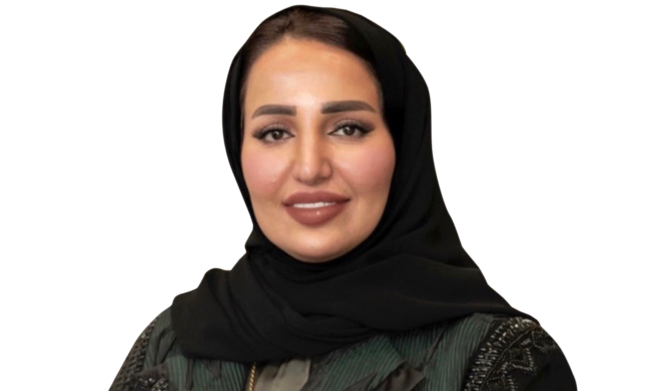Moudhy bin Jurais, who is the general manager of organizational culture at the Saudi Commission for Health Specialties, is currently working on promoting her work’s ethos in government and semi-government entities.
She believes in organizational culture for its direct impact on the performance of both employees and employers, and as a guiding framework for behavior.
Upholding the culture maintains the organization’s values, according to Bin Jurais, and this increases employees’ commitment to its strategy and goals.
This results in motivating and supporting employees to achieve the organization’s targets. In addition, the culture plays an important role in informing development and creativity-related actions.
Bin Jurais believes that organizational culture is an independent values-based factor that greatly supports business continuity operations.
She boasts rich and diverse career experiences. She served as the director of staff welfare at the Saudi Commission for Health Specialties for 12 months from February 2021, contributing to supporting the development of the Employee Wellness Program, establishing a financial fund to support employees, creating channels for engaging employees, and developing an internal complaint committee.
In her capacity as the director of the happiness department at the commission from October 2018 to February 2021, Bin Jurais initiated many programs, events and activities to improve employee well-being, work environment, and productivity.
She also developed a comprehensive professional development program to increase employee satisfaction and awareness.
Bin Jurais served as an associate project manager at the Healthcare Leadership Academy from 2017 to 2018. She contributed to establishing the academy, and developing its curricula and training plans.
Bin Jurais worked as the director of business development at the Saudi Center for Commercial Arbitration from December 2016 to October 2017. She managed all strategic operational marketing and customer relations activities, as well as helping to increase the center’s revenues and profits.
She served as sales director at Al-Jomaih Automotive Co. from June 2014 to December 2016. Prior to that, she worked as a senior supervisor for the women’s team at Al-Jazirah Vehicles Agencies Co. Ltd., from December 2011 to September 2013.
Bin Jurais led the customer service team at Watan Investment & Securities from April 2009 to December 2011.
She was previously the telesales team leader at Riyad Bank, from January 2005 to April 2009, where she developed program policies and strategies.
























